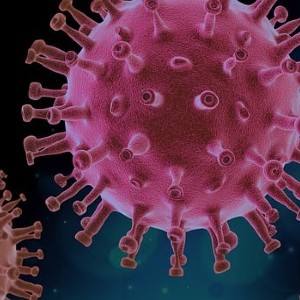Cytokine profile depending on titers of anti-SARS-CoV-2 IgG in the blood plasma of healthy volunteers

Accepted: November 29, 2023
All claims expressed in this article are solely those of the authors and do not necessarily represent those of their affiliated organizations, or those of the publisher, the editors and the reviewers. Any product that may be evaluated in this article or claim that may be made by its manufacturer is not guaranteed or endorsed by the publisher.
Authors
Post-COVID-19 conditions are the subject of extensive scientific study. It is known that system disorders may persist in people who recover from COVID-19 for 3 to 12 months (in most cases). The first line of systemic disorders is dysfunction of the immune system, especially the cytokine profile. The mechanism of the launch of immune complications is currently unknown. We hypothesized that anti-SARS-CoV-2 IgG might trigger the development of post-COVID-19 complications. Our research aimed to study the cytokine profile (including IL-1β, IL-4, IL-6, IL-8, IL- 10, IL-12β, TNF-α, IFN-γ) and the transcription factor NF-kB in the blood plasma of donor groups depending on various titers of anti-SARS-CoV-2 IgG. We determined the qualitative values of the cytokine parameters using ELISA (Enzyme Linked Immunosorbent Assay). We estimated the changes in the cytokine profiles in all donor groups. Differences between donor groups were established for each research parameter. We detected changes in NF-κB levels as a key transcription factor for the expression of inflammatory cytokines. The highest level was found in the donor group with a titer of anti-SARS-CoV-2 IgG 75±5 Index (S/C). We detected some differences between donor groups in the levels of pro-inflammatory cytokines compared to a reference point. IL-1β, IL-6, IL-8, INF-γ, and TNF-α levels changed in most donor groups with titers of anti-SARS-CoV-2 IgG ≥ 10±3 Index (S/C). In addition, we showed that the decrease in anti-inflammatory cytokine IL-4 in donor groups ranged from the titer of anti-SARS-CoV-2 IgG 55±5 Index (S/C) to 85±5 Index (S/C), but these changes for the anti-inflammatory cytokine IL-10 were not detected. We found that the cytokine profile may be affected during post-COVID-19 conditions. The cytokine profiles of the donor groups changed depending on the titers of anti- SARS-CoV-2 IgG. The obtained results testify to the fact that the antibody subpopulation may be a key reason for immune dysfunction, influencing the development of other pathological processes.
How to Cite

This work is licensed under a Creative Commons Attribution-NonCommercial 4.0 International License.
PAGEPress has chosen to apply the Creative Commons Attribution NonCommercial 4.0 International License (CC BY-NC 4.0) to all manuscripts to be published.

 https://doi.org/10.4081/jbr.2023.11256
https://doi.org/10.4081/jbr.2023.11256



